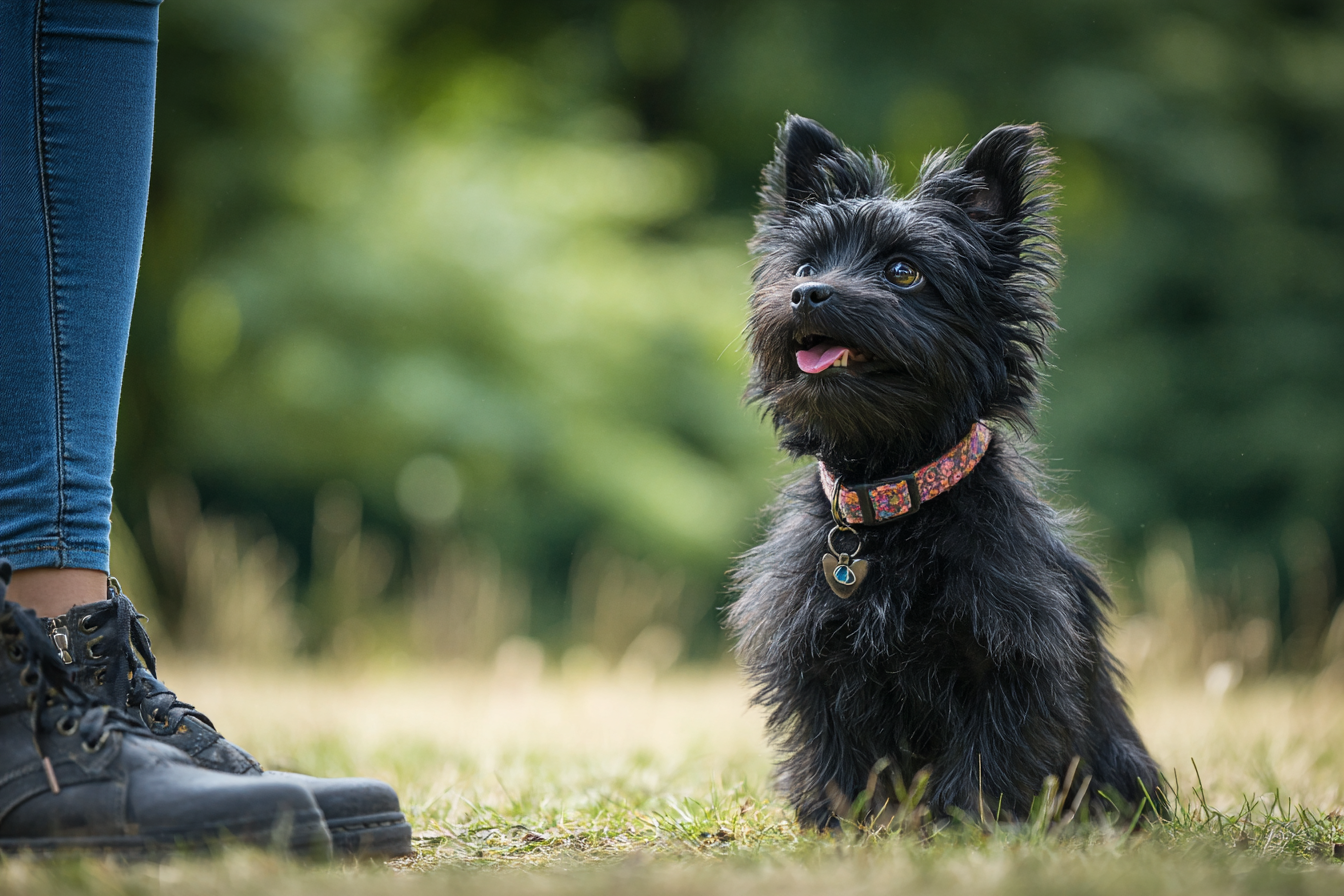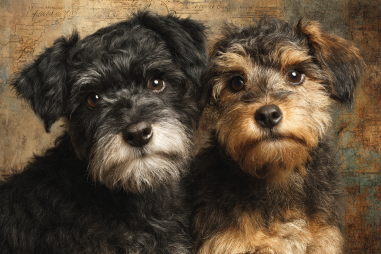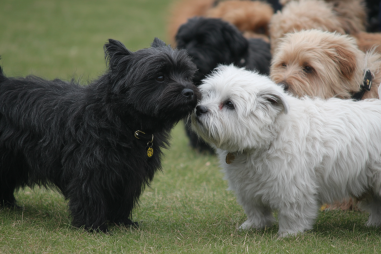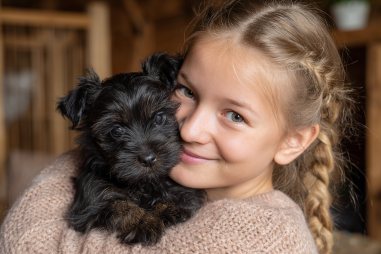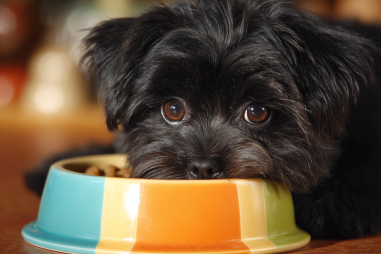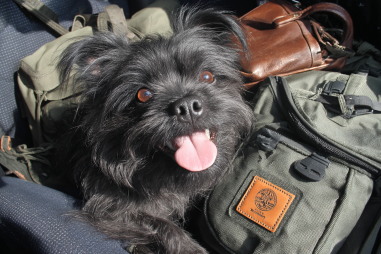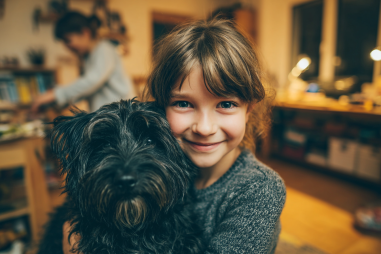Training an Affenpinscher can be both a rewarding and at times challenging experience. These little dogs are known for their spirited personality, sharp intelligence, and a touch of independence — qualities that, when properly guided, can develop into a well-mannered and affectionate companion. Whether you’re welcoming a new puppy into your home or looking to refine the behavior of your adult Affenpinscher, understanding their unique traits and applying consistent, positive training methods will pave the way for success. Let’s explore effective tips and techniques tailored especially for this charming breed to help you nurture obedience, social skills, and good behavior.
Understanding Affenpinscher Intelligence and Motivation
Affenpinschers are smart little dogs with a curious and lively disposition. Their intelligence means they can pick up commands quickly, but their independent streak sometimes causes them to test boundaries and decide when they want to cooperate. It’s important to appreciate this nature so you don’t get frustrated during training sessions.
Motivation is key to engaging your Affenpinscher. Most respond well to treats, praise, and play as rewards. Unlike some breeds that work purely for food, Affenpinschers also thrive on positive attention and mental stimulation. Understanding what your dog values most helps tailor training that feels like a game rather than a chore.
Basic Commands Everyone Should Teach
Starting with fundamental commands forms the foundation of a well-behaved dog. These essential commands provide safety, improve communication, and promote respect between you and your pup.
- “Sit”: A basic yet crucial command that helps gain your dog’s attention and control in various situations.
- “Stay”: Teaching your Affenpinscher to stay helps prevent them from bolting or jumping up impulsively.
- “Come”: Perhaps the most important command for safety, ensuring your dog returns to you when called.
- “Leave it”: Useful in stopping unwanted behaviors such as chewing on inappropriate items or picking things up outdoors.
- “Down”: Helps calm your dog and keep them grounded during exciting or overstimulating moments.
Introducing these commands early and repeating them frequently sets the stage for more advanced training down the road.
Positive Reinforcement Methods
When it comes to training an Affenpinscher, positive reinforcement is by far the most effective and humane method. This approach rewards desirable behaviors rather than punishing mistakes, which can prevent fear and anxiety.
Here are some helpful tips for using positive reinforcement:
- Reward Immediately: Give treats, verbal praise, or affection right after your dog performs the correct behavior to create a clear connection.
- Use High-Value Treats: Choose tasty snacks or toys your dog loves to motivate them during training sessions.
- Keep Sessions Short and Fun: Affenpinschers have a limited attention span, so multiple short, frequent sessions work better than long, drawn-out ones.
- Be Consistent: Use the same words and gestures for commands, and make sure everyone in the household follows the same training cues.
By fostering a positive environment, you encourage your Affenpinscher to eagerly participate in learning.
Socialization During Training
Early and continuous socialization plays a critical role in developing your Affenpinscher into a well-rounded dog. Because they can be a bit wary or territorial, exposing them to different people, animals, environments, and sounds helps reduce fear and aggression.
Integrating socialization within training means:
- Introducing your dog to other friendly dogs in controlled settings.
- Taking your Affenpinscher to various public places to experience different sights and sounds.
- Encouraging calm behavior around strangers and in new situations with treats and praise.
- Using positive reinforcement when your dog reacts appropriately during social encounters.
Well-socialized Affenpinschers tend to be more confident and stable companions.
Handling Stubborn Behaviors
Given their spirited independence, Affenpinschers can sometimes display stubbornness during training or daily life. This might include ignoring commands, barking excessively, or refusing to cooperate.
To handle these challenges:
- Stay Patient: Avoid raising your voice or showing frustration, as this can make your dog more resistant.
- Be Firm Yet Gentle: Clearly and calmly assert your expectations without harsh punishment.
- Redirect Attention: If your dog is distracted or resisting, gently steer them back to the task with a treat or toy.
- Increase Mental Stimulation: Boredom can make them stubborn, so puzzle toys and new tricks can help keep their mind engaged.
- Break Tasks Into Smaller Steps: Sometimes a command seems too complex. Simplify it and reward incremental progress.
Consistency and a calm approach typically help overcome any stubborn moments with your Affenpinscher.
Crate and House Training Advice
Crate training and housebreaking are fundamental parts of raising an Affenpinscher. Properly introducing a crate can provide your dog with a secure den and assist in managing their behavior, while house training ensures your living space stays clean and pleasant.
Key points for successful crate and house training:
- Make the Crate Inviting: Place cozy bedding and favorite toys inside to create a positive association.
- Gradual Introduction: Start with short periods and slowly increase the time your dog spends in the crate.
- Avoid Using the Crate for Punishment: It should be a safe, calm place, not a form of discipline.
- Establish a Routine: Regular bathroom breaks, especially after waking, eating, or playing, help reinforce proper elimination habits.
- Watch for Signs: Learn to recognize when your dog needs to go outside and respond promptly.
With patience and routine, your Affenpinscher will learn to comfortably use their crate and maintain good house manners.
Troubleshooting Common Problems
During training, you may encounter some common issues with Affenpinschers. Here are practical solutions to keep your progress on track:
- Barking Excessively: This breed can be vocal. Train the “quiet” command, reward silence, and provide ample exercise to reduce excess energy.
- Separation Anxiety: Gradually increase alone time while leaving comforting items in their crate. Use interactive toys to distract them.
- Chewing or Destructive Behavior: Provide plenty of appropriate chew toys and redirect chewing behavior; keep valuables out of reach.
- Jumping on People: Ignore unwanted jumping and reward calm greetings instead.
- Fearfulness or Aggression: Early socialization and consulting a behaviorist if behaviors escalate will help manage these concerns.
Every dog has unique needs, so adapting your approach with empathy and flexibility will bring the best results.
Creating a Lifelong Bond Through Training
Training an Affenpinscher is more than just teaching commands—it’s about building a trusting and joyful relationship. By understanding their intelligent yet independent disposition and applying positive, consistent methods, you set the stage for an obedient and happy companion. Celebrate small victories, stay patient during setbacks, and enjoy the delightful personality that makes the Affenpinscher such a special dog. With dedication, your efforts will reward you with a well-mannered friend by your side.

